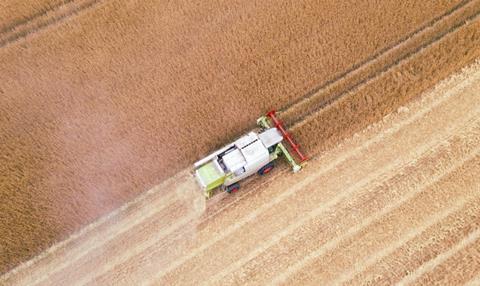Representatives from the British Meat Processors Association (BMPA) and the Association for Independent Meat Suppliers (AIMS) have warned of further disruption for UK producers, as a deal between Ukraine and Russia to allow global exports of wheat to resume has been put under pressure.

A deal between Ukraine and Russia to resume exports of wheat through the Black Sea was signed on Friday 22nd July, which was hailed by the UN as potentially ending world supply issues of the essential ingredient.
The deal was signed by representatives from Turkey, Ukraine, Russia and Secretary General Antonio Guterres.
The Russian Federation and Ukraine, combined, have accounted for around 30% and 20% of global wheat and maize exports, respectively, over the past three years.
On Sunday 24th July, reports from the Russian government said that it had carried a missile strike on several vessels on the port of Odesa. A Ukrainian military vessel and a number of US-supplied Harpoon anti-ship missiles have been destroyed.
Since then, representatives from Kyiv have said preparations remain under way to resume the grain exports.
More pressure expected
Nick Allen, chief executive of the BMPA warned that wheat prices will rise further if the deal collapses, with implications for producers in UK.
He said: “As soon as the deal was announced, we immediately saw a reduction in the wheat price, which was truly welcomed by pig and poultry farmers and much needed given the escalating costs of production. If the deal doesn’t happen, wheat prices will rise again putting farmers under even more intense pressure. In that situation, we would expect to see a drop in production and an increase in meat prices at home.”
The wider picture needed
A spokesperson for AIMS, Tony Goodger, said that the recent strikes were “troubling”. He said: “Movements of grain from Ukraine are essential if we are to avoid suffering through hunger in other parts of the world and the resulting need for aid to be sent to them.
“As regards the UK, we welcome more gain coming onto the world market as this may help to bring the cost of feed down and in turn reduce the input costs for pigs and poultry during the present cost of living crisis.
“Reports of an attack on Odesa over the weekend are of course troubling, and now is a time for cool heads diplomatically and the need for all to see the wider picture.”
This story was originally published on a previous version of the Meat Management website and so there may be some missing images and formatting issues.












